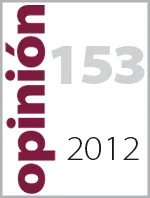France goes Socialist while Europe is in Disarray

Francis Ghilès,
Senior Research Fellow, CIDOB
22 June 2012 / Opinión CIDOB, n.º 153 / E-ISSN 2014-0843
After winning an absolute majority of seats in the in the parliamentary runoff of Sunday 17th June 2012, the French Socialist Party has a freer political hand to govern France than at any time since 1981. Indeed the party controls the presidency, most large cities and a majority of regional assemblies. In happier times, President François Hollande could allow himself a little time to sit back and enjoy what has been a very successful twelve months since he declared his intention to carry his party’s colours in the forthcoming presidential elections. The turnout was lacklustre - 57% of those entitled to vote, the extreme right wing Front National won a handful of seats for the first time in a quarter of a century but many heavyweight candidates of the former conservative UMP majority who had sought the votes of the Front National failed to get elected while more women became MPs than ever before.
Yet these are not happy times. Europe is in disarray: the current policy of austerity combined with the rigidities of monetary union and the absence of fiscal union has heaped misery on an ever growing list of countries with no end in sight to the misery of an ever harsher slashing of public expenditure which can only result in other countries joining Greece in the intensive care ward. In Greece and in France, the turn out last Sunday was low but that does not mean that people will remain passive in the face of fast declining living standards. Both in Spain and Greece, as indeed in Portugal and Ireland, despair and resentment at the austerity demanded of them goes hand in hand with a strong desire to remain in the euro zone.
The cause for reform is hardly helped by the manner in which sudden and savage cuts in public services are imposed: the replacement of democratic commitments by financial dictates from leaders of the European Union, the European Central Bank and international credit rating agencies whose judgements, in the recent past, have proved notoriously unsound is a recipe for disaster. Dismantling Europe’s system of social justice, a major achievement of the democratic order which was rebuilt after the Second World War will completely delegitimize the EU, all the more so considering the indecent haste with which it is being carried out.
François Hollande faces two challenges: the first is that the ills which affect the French economy have never been seriously debated in the French Socialist Party which until recently was convinced that reducing working hours, refusing the raise the age at which pensions become legal and pilling on yet another form of temporary aid to help create jobs for young people amounted to a coherent policy. The French state accounts for 56% of spending in the French economy making it is impossible to argue that the state should grow further. The second is that the new head of state has committed to return the public accounts to balance in front of his European partners and French electors but has failed to spell out the route, the method or the means. Any chance François Hollande might have of influencing the debate in Europe, any authority he might have with surplus states which are being asked to underwrite eurozone risks will be undermined if he fails to reign in state spending in France. But government by discussion has been a forte neither of French leaders nor of European ones. For decades the French elites carried a pro-Europe message as the economy of the continent grew. The government of the Socialist Lionel Jospin committed France to the Euro without any meaningful debate on in creation of a common currency taking place. Those who sought to raise awkward questions were ridiculed.
François Hollande is no Gaullist: he is not interested avoiding any infringement of French sovereignty; he is interested in building a coalition in Europe to push the Germans towards a more flexible attitude. Receiving the German SPD leaders at the Elysée Palace last week was symbolic of the president’s conviction that people matter, not just states. Nor is he interested in abandoning the close relationship with Germany which remains the linchpin of the European project. His predecessor fell into the trap of sacrificing all too French prestige: give the impression of sharing leadership in Europe while accepting German preferences on how to solve the crisis. The Germans quite naturally found the idea of selling their ideas to other Europeans with French endorsement rather attractive. François Hollande is seeking another model and one which relies on support from other European leaders. On whether he succeeds, the jury is still very much out.
What is not in any doubt is that ineffective and blatantly unjust policies dictated by leaders and unelected experts undermine both democracy and the chance of creating good policy. The disdain of such people for the public is matched by the latter’s reluctance to cast their vote. Jacques Delors, one of the key architects of the united European market and the Euro was François Hollande’s political mentor and guide when the latter entered the Elysée Palace as a minor adviser to President François Mitterrand in 1981. Hollande now faces a challenge, which no one could have envisaged a decade or so ago, that of helping to re-found a united and democratic Europe. In France as well, he has to convince his deeply pessimistic countrymen that the future is not as bleak as it looks but that success will only result from radical reforms. It is a tall order: it is too early to say whether June 17th’s victory was historic – for France and for Europe, or not. François Hollande is no longer campaigning, he has to prove he is a statesman.
Francis Ghilès,
Senior Research Fellow, CIDOB